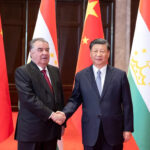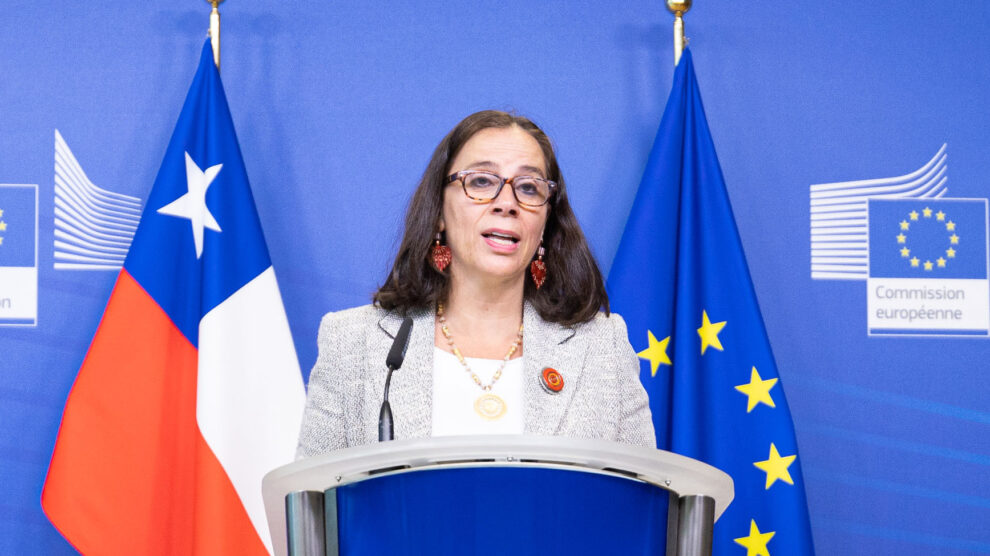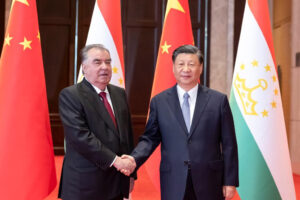The EU is in the final stages of updating its 2003 trade agreement with Chile, and aims to conclude a separate strategic partnership on raw materials “very soon” with the Latin American country, said Commission President Ursula von der Leyen.
The modernised EU-Chile trade agreement, like its sister EU-Mexico trade deal, contains a new chapter on energy and raw materials, which opens the door for deeper cooperation in those areas.
Talks to update the 2003 agreement were successfully concluded in December last year and lawyers are now doing the “legal scrubbing” of the text, said Leopoldo Rubinacci, a senior official at the European Commission’s trade department in charge of negotiations on the EU side.
The objective is to sign the agreement “very quickly,” he said at an event in Brussels last month, suggesting it could be sealed during a summit with Latin American countries on 17-18 July in Brussels.
The EU-Chile agreement reflects a new approach to trade by the Commission, which seeks to promote “win-win” partnerships with foreign countries in the mining and processing of raw materials.
The updated trade agreement provides “better access” for EU businesses investing in the raw materials sector in Chile, with EU companies awarded the “same treatment” as Chilean companies “and vice versa”, the Commission said in a statement announcing the conclusion of the deal in December.
‘Strategic partnership’ on raw materials
Ursula von der Leyen, the President of the European Commission, highlighted this new approach during a visit to Chile on Wednesday (14 June), where she met with the country’s president, Gabriel Boric.
“Chile is a very important supplier of lithium to the world, including Europe,” von der Leyen said in a speech alongside the Chilean President, announcing that the two sides have agreed to start working on a “strategic partnership” on raw materials.
“We both will be working hard so that we can sign a Memorandum of Understanding very soon, to join forces,” von der Leyen announced.
A key aspect of the strategic partnership will be to create local added value in Chile rather than extract minerals and leave, like Chinese companies often do in Africa – with little regard for human rights or the environment.
“We think differently. We think it is much better for the local communities that you do not only have the mining and extraction here, in an environmentally respectful manner, but that we also have the processing process and the whole value chain here in Chile,” von der Leyen said.
“For that, we will promote the sourcing and mining that is respectful of the environment and of the livelihoods of your communities. And we will work with you to develop the whole value chain here in Chile,” she added.
The interest on the EU side is to trade with a reliable partner, von der Leyen explained, saying Europe learned its lesson the hard way last year when Russia turned off the gas tap to Europe.
Lithium, a ‘comparative advantage’ for Chile
Pascal Lamy, a former EU trade commissioner and head of the World Trade Organisation (WTO), says Chile is “a case in point” in the broader dynamic of new trade agreements that the EU is trying to forge with foreign countries.
According to him, the “strategic partnership” with Santiago marks an evolution compared to the previous EU-Chile trade agreement of 2003, which he negotiated.
“It’s a different animal,” said Lamy, who is now with the Jacques Delors institute in Paris.
“Looking at raw materials, Chile has a specific comparative advantage which it did not have at that time, which is lithium,” he told EURACTIV in a phone interview. “Twenty years ago, Chile was interesting for copper production and had no problems in exporting. In the case of lithium, the context is very different because of the global shift towards electrification, decarbonisation, and batteries for electric cars,” he said.
In essence, strategic partnerships go back to “the very origins of trade” where one side has something to export which the other side wants and doesn’t have, Lamy explained. The key difference is that the new EU-Chile trade deal also contains social and environmental clauses.
And according to Lamy, Chile will be happy to meet EU standards and norms.
“The reason for that is that Chile is an emerging country – in terms of social and environmental law, they are already very near the European model,” Lamy said. “More broadly, it’s in the interest of Chile to look good and in the interest of the EU to provide its investors, economic operators and consumers of raw materials with assurances that mining is done in a professional way.”
EU investments
At the European Commission, Rubinacci argues along the same line, saying the key benefit for Chile will be its ability to attract investments from EU companies in the mining sector while upholding social and environmental standards along the way.
“This is where private capital comes in” because mining projects will be more costly if they follow strict social and environmental rules, Rubinacci remarked when he spoke at the Brussels event last month.
“If we want to have resilient value chains, we have to support sustainable investments in third countries,” the official argued. “Buyers of those products are looking for sustainability assurances. They want to know what happens in the value chains. Because this is what the markets wants,” he said.
At the same time, Santiago will keep “full latitude to decide how it wants to regulate the mining sector,” Rubinacci added, illustrating the EU’s new approach to raw materials.
In theory, strategic partnerships are also simpler to pass than traditional trade agreements, which require ratification by all EU member states.
“On the European side, it’s about finding the right mix of competences between the EU and the national level,” Lamy said. “If there is one area that requires unanimity voting, it’s like a drop of pastis in the water – it stains the whole bottle.”
Still, Lamy cautioned against over-optimism regarding the strategic partnership with Chile, saying it was too soon to conclude that it will actually benefit the local economy.
“Whether this materialises will depend on whether the content of the agreement is effectively enforced,” he said.
Source: Eura CTIV
















